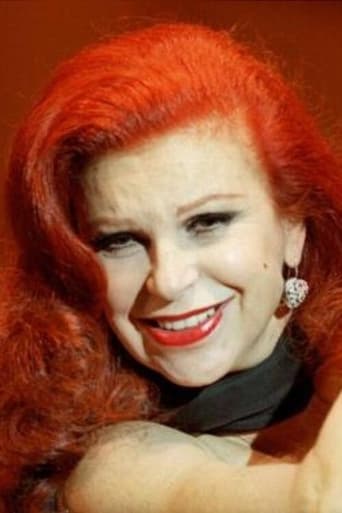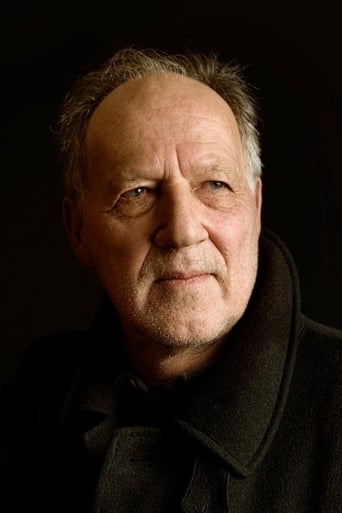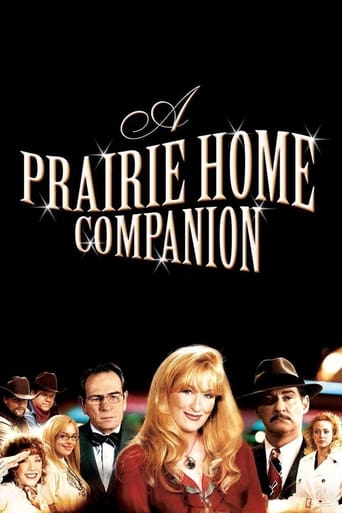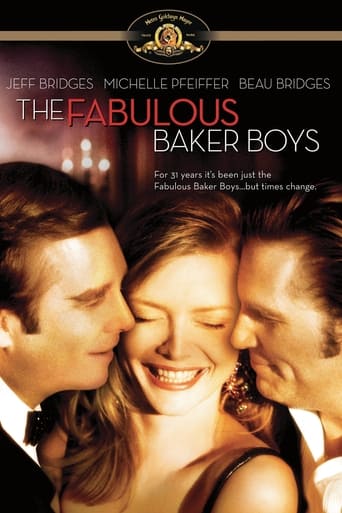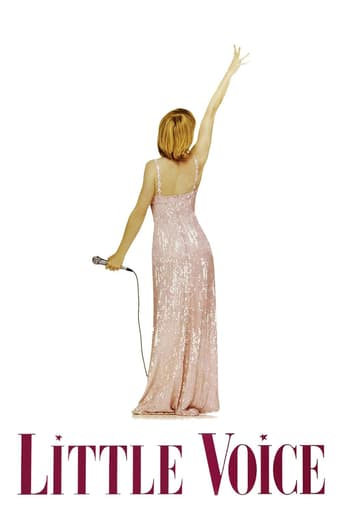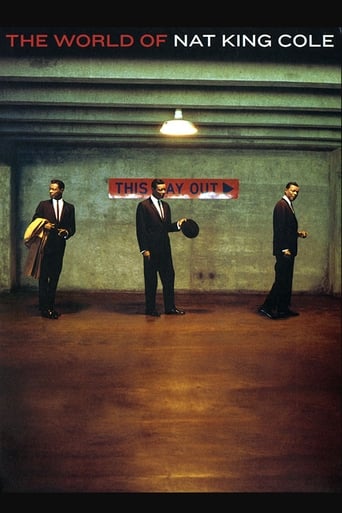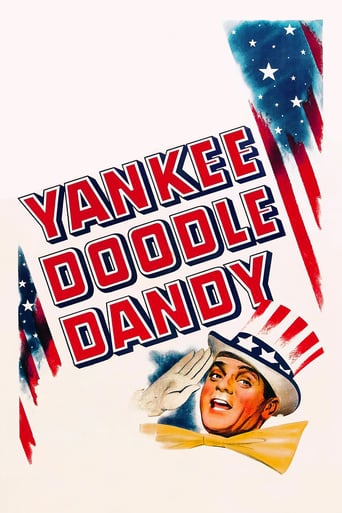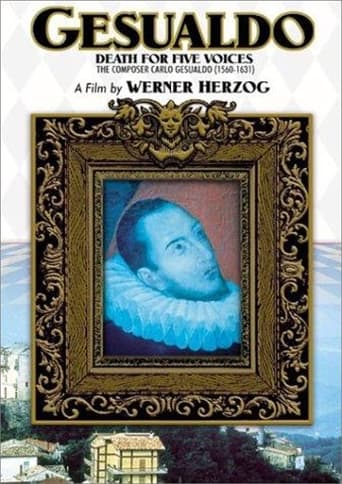
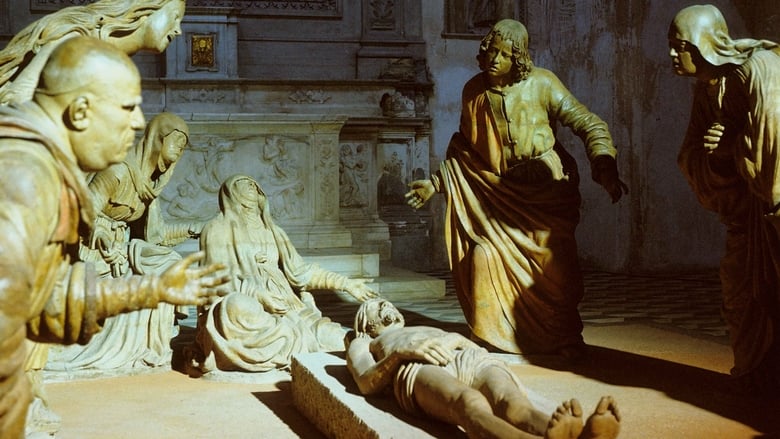
Gesualdo: Death for Five Voices (1995)
Works, legend and murders of Carlo Gesualdo, a notorious Italian composer and murderer from 16th century.
Watch Trailer
Cast
Similar titles
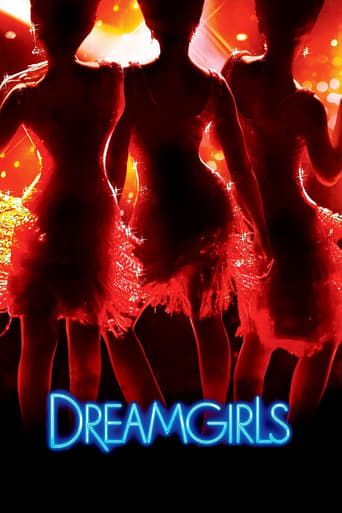
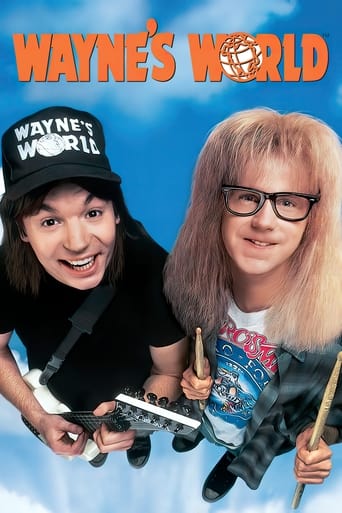
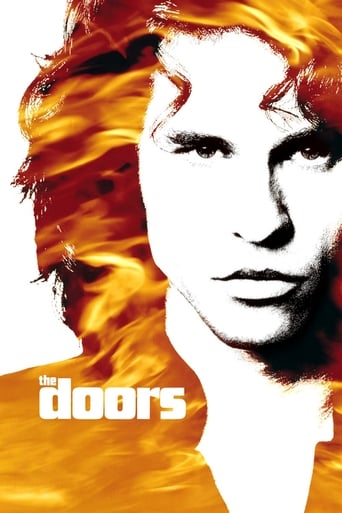
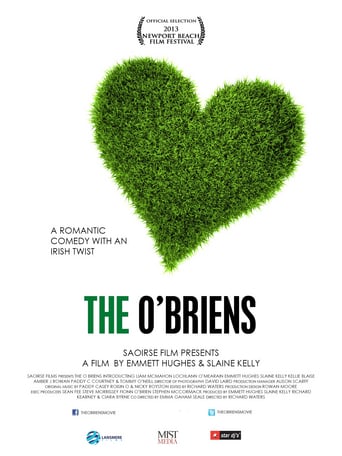
Reviews
Best movie of this year hands down!
There's no way I can possibly love it entirely but I just think its ridiculously bad, but enjoyable at the same time.
what a terribly boring film. I'm sorry but this is absolutely not deserving of best picture and will be forgotten quickly. Entertaining and engaging cinema? No. Nothing performances with flat faces and mistaking silence for subtlety.
All of these films share one commonality, that being a kind of emotional center that humanizes a cast of monsters.
We really do change a lot. Two years ago this was another Herzog-story on creative madness to me, one of many small ones he has done.I saw it this time with insights from a classically trained musician friend, and myself steeped in observation of storybased limits in Wagner as well as Italian Futurist writings from the 1910's about chromatic -abstract- harmony, among other things on disharmony I have been looking into.The piece is deceptively simple: disguised as documentary truth, we have, pieced together from several narrators, a short story on madness, tormented love, and musical genius that transcends the holy (from the time before Bach). And if the musings of the rough-hewn caretaker of the ruined estate can be safely waven off as tall folk legend, the by all means respectable director of the Gesualdo institute projects confidence, as he looks up from his stack of papers, that he is recounting an account of actual history of things as they happened.We go on to visit places central in events of that story, as well as closely examine some of the trinkets of drama: the actual bed where murders took place, the gruesomely displayed skeletons "most likely" those of illicit lovers.Other narrators are much more obviously unreliable than would satisfy truly fine limits between reality and fiction, but even so, many viewers have come out of this confused. It seems, from the perspective that this is really an account, a gross miscalculation on Herzog's part to include the obviously set-up bit with the supposed mad opera singer, interjecting staged eccentricity in the midst of truth. Not at all.The point is that down to the original - judicial - account, we only have testimonies and conjecture, and we can plainly see from testimonies Herzog has gathered in the course of the film, how difficult it is to surmise the real thing from stories about it. We come out of this with slight variations on the portrait of a man, with dissonance between the voices telling the story. The only truth left is in the music, excerpts of which are marvellously conducted for us.And how stupendous, that music - offered to god - is about slight dissonance between different voices, each one harmonical within itself, but the whole has subtle disharmony that is its own chromatic truth in the face of the harmony of logic, and that truth is we are dissonant beings.If you thought Herzog's recent Cave of Dreams was too ordinary, look again. It's about the same dissonance in our narrative devices.
Werner Herzog, in his storied film career, has made many a good documentary and mockumentary. Gesualdo: Death For Five Voices (Tod Für Fünf Stimmen), made in 1995, is not one of them. Coming from a master of cinema, like Herzog, though, that still means Gesualdo is a pretty good film, but don't expect anything of depth. Ostensibly, the film is a chronicle of the life of a 16th and 17th Century prince and musical composer named Don Carlo Gesualdo, Prince of Venosa. One might think that the sordid tale that emerges in the 60 minute, made for television documentary, was crafted just to satisfy Herzog's own dictates about 'ecstatic truth.' The film centers around Gesualdo's murder of his first wife, one Maria D'Avalos. The legend is that Gesualdo hired goons to rub out his wife in her bed, with an aristocratic lover. The bodies were then tossed into the street where a passing necrophilic monk supposedly copulated with Maria's corpse. No, I'm not making this up, as it seems to be a fact. There are also scenes on various estates of the prince where Herzog seems to just happen upon wacky locals (although he has admitted that they were staged events designed to get at a deeper reality about Gesualdo). There is a poor bagpipe playing musician who comes every week to the castle to play music to ward off the prince's evil spirit. At another time we see a supposed attractive red haired female mental patient running through ruins (never being able to lose Herzog's camera- a tip off to the setup), who, when trapped, claims she is the reincarnation of Maria, and that she lives in heaven, which may or may not be an opera box. It just happens that this Italian 'mental patient' speaks English, has a boom box with her, and is wearing a pushup bustier that enhances her massive mammary glands. She was hired by Herzog for the role, and is an Italian opera singer of some note called Milva.But, the worst thing about the film is the hagiographizing of Gesualdo as a musical genius, simply because several modern composers have tried to link him to their work. Yet, when one listens to the compositions played by an amateur ensemble, well, genius is not the word one feels evincing itself. The music is certainly not bad, but it is merely competent. There is none of the instant recognition of greatness one gets from listening to an Erik Satie piano etude nor the internal spark of seduction that a Vivaldi concerto for classical guitar imparts. Yes, there is a certain legitimacy to the gripe that the singers and conductor in the ensemble are not exactly top notch, but even adjusting a bit for amateurishness, the music simply will never be mistaken for something Mozart or Beethoven penned. Yet, this is exactly what Herzog intends- to build a dissonance between the mediocrity of his music and the flamboyance (mostly because of his wickedry) of the man. Why is he profiling this rather obscure (deservedly so) artist? Simple. It is what Werner Herzog must do to be Werner Herzog. In that sense, Gesualdo: Death For Five Voices reveals far more about its creator than it does about its subject. Witness the multiple breaks of the fourth wall, and the sometimes absurdly long takes of people babbling on about Gesualdo's life whilst Herzog's camera strays to a cobweb upon a window or across a once verdant valley that Gesualdo reputedly chopped down himself over the course of several months.What all this might have to do with revelation of something deeper is....well, nothing. If anything, this film's quirky style is its raison d'etre. One feels that, had Herzog not settled on Gesualdo as fodder. He would have made a film about the very next thing that popped into his mind. And the film's style of embellishment upon already wacky reality seems designed to make Gesualdo: Death For Five Voices a This Is Spinal Tap of classical music, or an F For Fake for music. Why? Again, because it's Werner Herzog. Unfortunately, the lack of depth is what ultimately dooms this film. Other than Herzog's interest in the composer and his luridness, there really is no reason for anyone else to be interested, unlike other great documentaries he's done. Lessons Of Darkness, My Best Fiend, Grizzly Man, and Little Dieter Needs To Fly, all had reasons for their making and/or provided a new twist on something not seen before. Gesualdo: Death For Five Voices is just a quirky little television documentary, possibly a made for hire production.Regardless, intent means nothing, and the end result of all the confabulations, half-assed expertise, and staged incidents is a mediocre film, possibly the worst Herzog's ever made, and certainly the worst film of his I've watched. But, again, the caveat is that Herzog is a great artist, so even his worst has moments of artistic and journalistic redemption that makes a viewer smirk, despite his better angels. The film claims that Gesualdo spent the last 16 years of his life as an increasingly insane and reclusive madman. Whether or not this is true is of no real import, but by the end of this 'documentary' I was of the opinion that had Herzog shot the film as a fiction, along the line of his earlier The Enigma Of Kaspar Hauser, the film would have been better for its odd flourishes. A touch of his patented 'eye level realism,' a dash of 'ecstatic truth,' and participants that seem to be a bit more engaged, and Herzog could have really bamboozled a fictive account of the wacky composer that his 'straight' mockumentary misses. As it is, Gesualdo: Death For Five Voices is merely a curio, even if from a master. But, after a curio is in one's grip, it ends up in a corner with dust upon it. Swiffer, anyone?
This is the place where the modern-horror genre begins--people like Italian Renaissance Prince, Carlo Gesualdo. Possibly born in 1561 (or 1566, depending on who you believe), Gesualdo was born into nobility, and was the recipient of a Principality in the town of Venosa, and a Duke of the Kingdom of Naples. The Gesualdos were connected by blood-ties to nearly every noble family in Renaissance Italy. Carlo was considered a child-prodigy like Mozart, and was an accomplished performer of the lute and harpsichord. In 1586, he married his cousin, Maria d'Avalos. The woman was known for both her incredible beauty and her amorousness (though this is debatable), and the marriage was possibly ill-fated due to Gesualdo's abusive-behavior. It is unknown whether this is the reason for d'Avalos's infidelities, though his second-wife consulted a witch who poisoned the Prince in an attempt to enchant him. Both his wife and concubine were imprisoned and tortured for the deed, dying shortly-afterwards from the ordeal. It's uncontroversial that the Prince was a sadist, and Gesualdo had wanted them hanged, but the Church interceded. However, it does appear that infidelity was the reason why Carlo murdered d'Avalos and her lover in what is considered the most heinous murder in the history of music.By 1590, the marriage had gone-sour: the Prince had found the apartment that the two lovers were using from an uncle (a Cardinal who had unsuccessfully attempted his own affair with d'Avalos). The place was a niche-room in his own palace, and he commenced the planning of a murder. In a premeditated-act, Gesualdo told d'Avalos he would be away on a hunting-trip overnight, but he and a personal guard waited-nearby until the two had consummated their lovemaking, falling-asleep. Gesualdo kicked-in the door and stabbed Maria d'Avalos dozens-of-times in the abdomen and vagina, as well as similar sexual-mutilations on her consort, the Duke of Andria. It is said in the local-legends of Venosa that after Gesualdo had dragged their bodies into-the-street, a San Dominican monk committed an act of necrophilia on the body of d'Avalos. Afterwards, Gesualdo had their bodies publicly-displayed on the steps of a Church, eventually using the corpses for an alchemical-experiment that rubberized their organs and circulatory-systems. The bodies are still on-display in a Church in Venosa, as Carlo was an alchemical-genius. Because he was a Princeps, there were no charges.From the time that Carlo Gesualdo murdered his first-wife, until his death in 1613, he did penance by composition and flagellation. It is said that he suffered from asthma and constipation, and was possibly further-enfeebled by his poisoning by the witch and sorcerer at-the-behest of his concubine and his second-wife. For the rest-of-his life, Gesualdo composed his haunting madrigals, and was well-known in his time as a composer of genius. Today, he is even more well-known, which is probably due to the depraved life he led, and this documentary by the also-legendary Werner Herzog (commissioned in 1995 by ZDF). The murders haunted him until-the-end: immediately-after the killings, he personally cut-down the forest surrounding Castle Gesualdo, much like Macbeth's fear of Birnham woods. Interest in the occult was universal in the time of the Prince, and it begs-the-question whether Shakespeare and Christopher Marlowe were informed-of Gesualdo's story through the court of Elizabeth the I. A surprising number of Elizabethan plays come from stories whose origins reside in Renaissance Italy. It's my opinion that it bears some investigation. By the end of his life, Prince Carlo Gesualdo was madder than Macbeth. Why do I think the modern horror-story originated with Gesualdo? A hunch.Werner Herzog does incredible justice to the story of Gesualdo, and the events which made him famous. But, he goes further by interviewing contemporary-residents of Venosa on the impact left by the man into today. In contemporary Venosa, many people around the town still shun the name of Carlo Gesualdo, while the mentally-ill fancy they ARE the Prince, reincarnated. Others, such as the mad opera-singer who "haunts" Castle Gesualdo, fancy they are Maria d'Avalos. It seems the belief in magic is alive-and-well in Venosa and Ferrera, and local-occultists enter the castle to exorcise it regularly with all-manner of approaches (one uses a bellows-bagpipe). With skill, Herzog wipes-away centuries with his approach, making this story a living one about the battles within all of humankind that continue into these times. The music of Carlo Gesualdo is unearthly, yet it is so terminally-human, just like his legacy. Perhaps we find him so interesting because he was 300-years ahead of his time, compositionally (and alchemically). This is the documentary as high-art.
(EDIT): As of 2005, this was my introduction to Herzog, and a fitting one. As a documentary I watched by him about a 16th century composer, it was captivating, strange, and of a certain macabre style that is probably in much of Herzog's work. I'd heard of his films Aguirre, the Wrath of God, and Fitzcerraldo, both with stories that boggle the mind with their approach on life and dark subject matter (he's also worked with Klaus Kinski, a rather eccentric actor, if one can point out as such). This film, Gesualdo, puts focus on the 16th century composer in a fashion like Godard did with the Rolling Stones in Sympathy for the Devil. Half of the film is just music playing, giving an idea of what the musicians had to do. The other half skims the line between fiction and documentary, as the director sets up staged scenes to add to the deliberate atmosphere. It's still a documentary, but only in that you see it in the documentary style- some of this is scripted (likely).The story of Gesualdo in and of itself could have made for a terrifying, awesome bio-pic from Herzog, but hearing the history anyway is fascinating enough. The composer of concertos was a Don in Italy, who in between composing his strange harmonies killed his first wife and child, and lived in exile for many years, including the last few of his life. There is the usual scholarly type who gives information about his life, but then there are also local historians, locals of the area, chefs, caretakers, and the buildings where he once lived and held his grand, renaissance-era parties and gatherings. The climax of the film- a celebration out in the streets, is something to see. It's not a long film at one hour, but it's worth the view.
